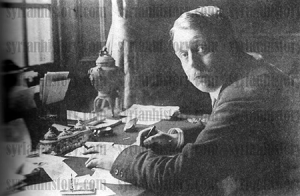The Sykes-Picot Agreement (‘Honesty in diplomacy is rare’)
In 1916 a secret agreement was signed between Britain and France, each country agreeing to take control of Turkey in the form of newly – made partitions. War was coming and the Ottoman Empire (q.v.) was inclined to join the Central Powers (q.v.). Britain would directly control the Baghdad /Basra region of southern Iraq, while France would have the north Syrian coast. In the rest of Mesopotamia and the interior of Syria, France would have indirect control in the north, and Britain in the south. Palestine, apart from a coastal section which would go to Britain would come under international governance.
But this was by no means all: Russia, in return for recognising the agreement, would receive part of Eastern Anatolia. The Agreement was therefore in conflict, morally at least, with the Husayn/McMahon correspondence, which had promised independence to Arabs in most areas. Russia, Bolshevik after the October Revolution (q.v.), nastily published the text of the Sykes/Picot lash-up, greatly embarrassing both France and Britain. The Arabs were convinced after this that Britain, in particular, was engaged in double-dealing, and insincere when making promises. In the Great War the actions of Laurence of Arabia in the Arab interest served to change the Arab view, and it is likely that Allenby’s successes could not have occurred if Laurence had not convinced the Arabs that not all British diplomats spoke with a forked tongue.














Sykes was responsible for a lot more during WWI’s Middle East war than just the “Sykes-Picot Agreement”, much of which can be related to the present-day turmoil in the region.